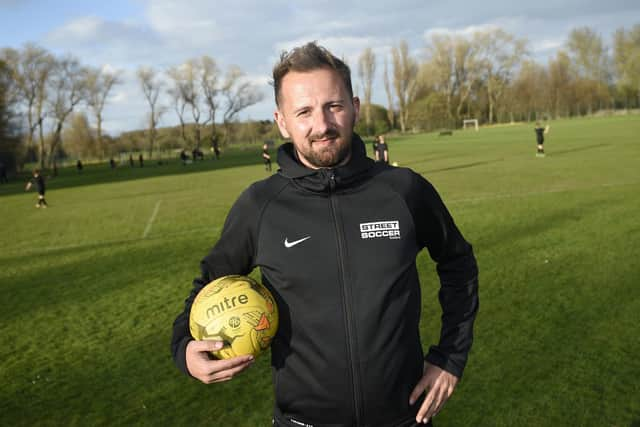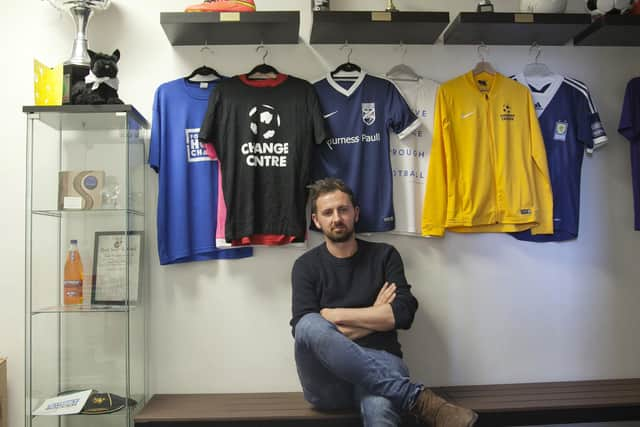Covid Scotland: Street Soccer founder David Duke tells of lockdown isolation and anxiety
For David Duke, chief executive of Street Soccer Scotland, the enforced isolation caused him to turn again to the support of the charity he founded.
Street Soccer has used football to build connections and offer opportunities to socially disadvantaged groups in Scotland since 2009.
Advertisement
Hide AdAdvertisement
Hide AdIt is built on a model of social interaction and physical activity, which founder Mr Duke found himself lacking during lockdowns.


At first Mr Duke coped well with the pandemic. Having founded Street Soccer following a tough childhood, the death of his father and a period of homelessness, he already had resilience to difficult circumstances.
“Covid cut me off from friends and family, stopped me from going to bars and restaurants, and it brought a level of financial insecurity and of insecurity in general, and a fear of the unknown,” he said.
"That becomes the norm when you’re homeless.”
But in the enforced isolation, Mr Duke, who lives alone and was used to keeping busy and interacting with a lot of people at work, began to feel anxious.


“I went from constantly being around people, whether it was football sessions, events or meetings, to suddenly just sitting in the house quite a lot,” he said.
“I think the more time you spend alone the more it becomes normal, and the thought of having to socialise sometimes starts to bring anxiety.
“You start to overthink things you used to take for granted because you have so much time in the house without being able to talk to people.”
The loss of a friend during lockdown was particularly difficult, Mr Duke said.
Advertisement
Hide AdAdvertisement
Hide AdAnd with so much alone time, he began to return to thoughts of his past, including the death of both his parents.
He started to fear the return of a panic attack he had experienced years before.
This isolation and grief was coupled with a lack of physical activity, especially after a broken ankle.
Mr Duke realised he was not coping and turned to the ethos of Street Soccer, which he set up more than a decade ago based on his own experiences.
“What I needed to do was look at the project,” he said.
"Street Soccer was set up to help with things like mental health, isolation and loneliness.
“So I almost had to adopt the model I created all those years ago, which is basically people and activity – being around people more, being more actively social and getting that physical activity.”
After his ankle healed, Mr Duke began running for short periods each day and, once lockdowns relaxed, began to meet friends again.
Anxiety around meeting friends and socialising lingered for a while, and Mr Duke has noticed others seem to be feeling this too, with an increase in last-minute cancellations for events.
Advertisement
Hide AdAdvertisement
Hide AdHe has now returned to attending and speaking at events, and hopes Street Soccer can help others who also struggled with lockdown isolation.
Numbers are up, with nearly 500 new players this year.
"It gives people something to wake up in the morning for, to get a game of football, meet some friends … you know that you’re not alone,” he said.
A message from the Editor:
Thank you for reading this article. We're more reliant on your support than ever as the shift in consumer habits brought about by coronavirus impacts our advertisers.
If you haven't already, please consider supporting our trusted, fact-checked journalism by taking out a digital subscription.
Comments
Want to join the conversation? Please or to comment on this article.
